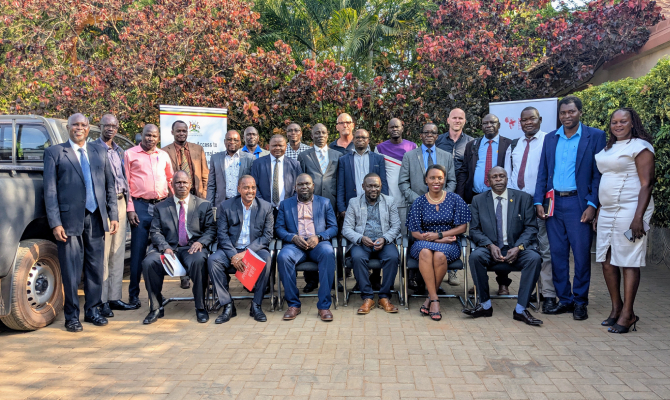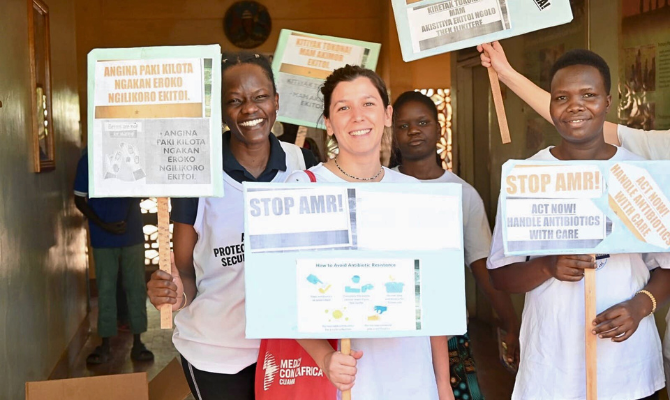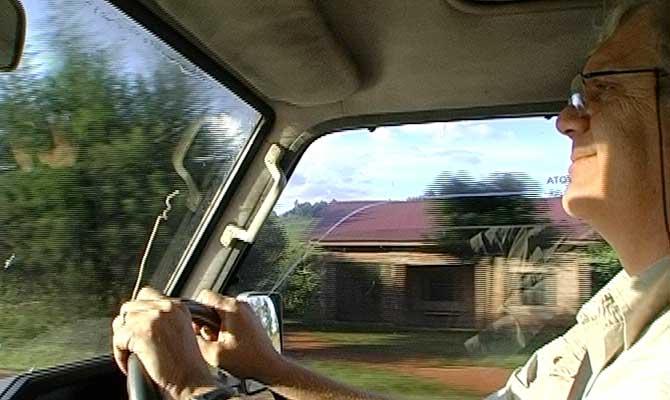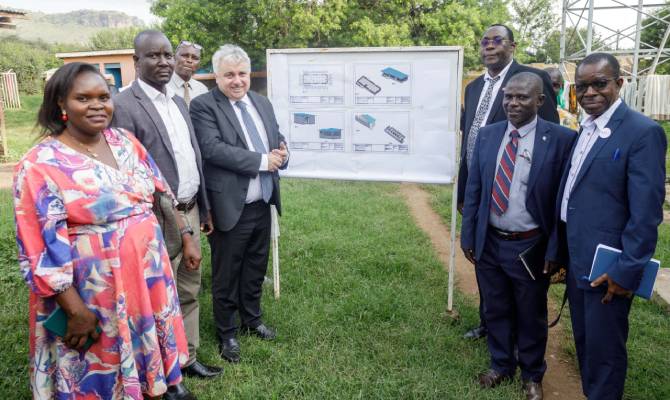“Increasing Access to Specialized Maternal and Neonatal Services in Karamoja and Lango Region 2024-2026”: this is the priority goal of Doctors with Africa CUAMM together with the Ugandan Ministry of Health, particularly through the recently launched two-year project in Uganda, funded by the ELMA Foundation.
Activities are taking place, in synergy with CUAMM’s already active interventions, in four districts of Karamoja (Moroto, Amudat, Kaabong and Abim) and three districts of Lango (Alebtong, Otuke and Oyam), involving 66 health facilities.
Although there have been improvements in the reduction of maternal mortality, there still remain problems related to the management of obstetric emergencies during the perinatal period and the resulting outcomes. Indeed, wide regional disparities exist: according to the Maternal and Perinatal Deaths Surveillance and Response Report (MPDSR) 2023-24, the maternal mortality rate in Karamoja is 73.9 per 100,000 live births compared to 61.1 per 100,000 in Lango.
“The districts involved were chosen because they have limited access to maternal and neonatal services while having a high patient load. This project will therefore seek to address the challenge of neonatal death and increase the survival of children under 5 years old,” said Peter Lochoro, Uganda Country Representative for Cuamm.
The intervention focuses on on-the-job training and mentoring of health workers to implement quality maternal and neonatal services by strengthening leadership, management and accountability skills from district and national authorities.
“The ELMA Foundation has been supporting us for over 6 years to improve human resource skills and capacities by qualifying health workers through scholarships and promoting mentorship,” added Peter Lochoro.
Specifically, the intervention works on multiple levels and aims to: improve access and quality of care for women during pregnancy, including cervical and breast cancer screening; facilitate Village Health Teams, village health workers, and “peer mothers” in implementing community-based care services, including case referrals and patient follow-up; and engage and raise community awareness of maternal and newborn services.
In addition, it is intended to strengthen emergency referral systems by improving the functionality of ambulance services and providing vouchers to transport patients from communities to health facilities and between facilities and the 9 Comprehensive Emergency Obstetric Care sites for the comprehensive care of obstetric and neonatal emergencies. In this regard, efforts are being made to improve access and quality of care during labor and delivery by supporting the continued functionality of 3 CEmONC sites in Amudat and Oyam districts, specifically the operating rooms; ensuring the availability of needed drugs and medical equipment, along with the availability of blood and blood products; fostering better action planning; and ensuring surveillance and response to maternal and perinatal deaths (MPDSR).
Improved care for women is complemented by efforts to improve access and quality of care for newborns by investing in growing the clinical skills of health workers in advanced neonatal resuscitation care with innovative technologies, facilitating the adoption of infection prevention and control (IPC) practices, strengthening neonatal clinical care in 9 CEmONC sites, and facilitating the use of the “Kokono” device, a protective cradle to create a safer environment for newborns.
The launch event, held in Soroti, was attended by district political authorities and technicians from the 7 districts involved. “The impact of collaboration with CUAMM is being felt, the results on the ground are tangible, and the goals of this project are in line with the Ministry of Health’s national sustainable development priorities,” said Rita Akankwasa, ELMA representative.
Every day in Uganda, and in all the countries where CUAMM has a presence, we try to go the extra mile, together, to ensure that mothers and children can have access to the quality health services they are entitled to.





